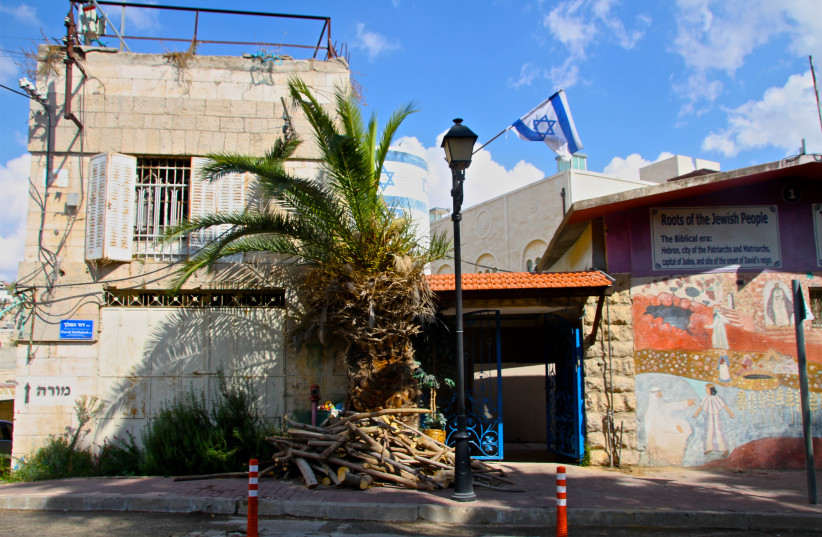Construction on a new Jewish settlement in Hebron began this week for the first time in 20 years, left-wing advocacy group Peace Now reported on Thursday.
The project includes a 31-unit apartment building and two kindergartens on a site off Shuhada Street in Hebron, known as the Hezkiyahu neighborhood.
An appeal by Peace Now and the Hebron Municipality against the project was rejected two weeks ago in a district court, which paved the way for the construction to begin.
The project, to be named "Chabad Quarter," is being constructed on property that was owned by the original Hebron Jewish community. After 1948, the Jordanian government treated it as abandoned property and used it as a school and a bus station, under a protected tenancy agreement.
When the IDF took over Hebron in the aftermath of the Six Day War, its custodian of abandoned property respected the protected tenancy agreement and allowed the Palestinians to continue to lease the property. The IDF seized the land in the 1980s for security reasons.
According to Peace Now, the law is that when those security reasons expire, the land must be returned to the owners of the rights to it, and the municipality of Hebron is considered a protected tenant that leases the land.

Israel's government bases its claim to the land on its early Jewish ownership.
"The government is acting like an annexation government, and not a government of change" Peace Now stated.
"Since the '80s no government dared to build a new settlement in the biggest Palestinian city in the West Bank, except for one building in 2001. The Defense Minister should have stopped the construction, even if the plan was approved by the previous government," the statement read.
"The settling of Hebron is the ugly face of Israel's control of the [West Bank] territories. The moral (and reputational) price of a settlement existing in Hebron is intolerable," the organization concluded.
